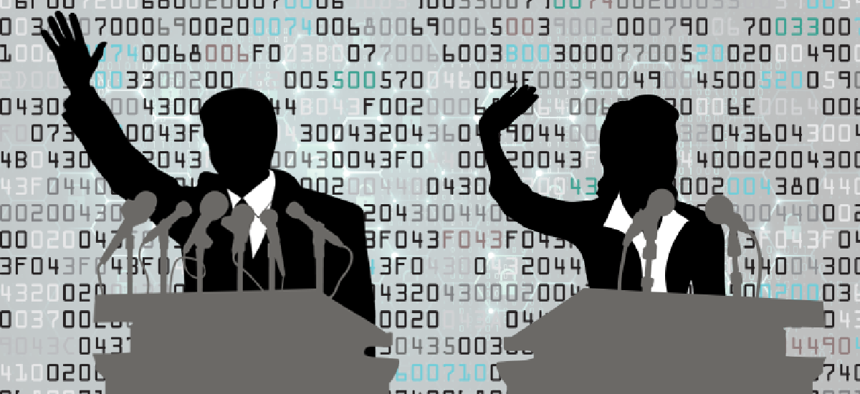Discounted cyber services available for political campaigns


Connecting state and local government leaders
The cybersecurity services will help address some of the most common digital threats -- from phishing attacks and email compromise to data theft or loss of campaign donor information, polling data and other sensitive data.
Defending Digital Campaigns, a nonprofit sanctioned by the Federal Election Commission, announced a suite of cybersecurity services that will be made available to federal campaigns to help address some of the most common digital threats, from phishing attacks and email compromise to data theft or loss of campaign donor information, polling data and other sensitive data.
The free or discounted services include end-to-end encryption services from Wickr, IT security training services from Cybrary, email security services from Area1 and managed security services from GRA Quantum.
CEO Michael Kaiser said the unique role that these political campaigns play as “elemental pieces” of democracy mean they are going to be the subject of more targeted and determined attacks from hackers. "These people have huge targets on them,” he said.
In May, the FEC issued an advisory opinion granting a waiver to the group to offer cybersecurity services to political campaigns at little or no cost, something that traditionally would run afoul of campaign finance laws. The offerings will be available to all federal campaigns that qualify for the general election ballot or meet one of the following criteria: House candidates who have raised at least $50,000, Senate candidates who have raised $100,000 and presidential candidates polling above 5% in national polls.
Some of the services will be free, while others will be discounted. Kaiser declined to go into specific prices or rates, but said the companies involved are exploring a variety of ways to make their products cheaper or easier to buy.
“People have been very good about sharpening their pencils, some are giving 50% off, some are giving some level of product for free,” he said. “Companies are also being creative in other ways… [with] some saying we’ll give you a shorter contract [term] so you don’t have to commit as long.”
Kaiser said it was difficult to provide an estimate of how many campaigns the group expected to work with over the next twelve months, but said he hope to work with the Republican and Democratic National Committees as well as other groups to do outreach and ensure awareness among as many campaigns as possible.
“We’re just getting started, we’re hearing from the people that we’re talking to that there’s a hunger for this,” he said. “I don’t think it will be a hard sell for people to think they need to do cybersecurity, but there may be some awareness raising and we’ll do that if we need to but we’re hoping there will be relatively large numbers [of interested campaigns].”
The group, an outgrowth of Harvard University’s Defending Digital Democracy project, was formed this year out of widespread recognition following the 2016 election that political campaigns were prime targets for compromise by foreign intelligence agencies and other bad actors. Many campaigns are understaffed, operate on shoestring budgets and lack the kind of IT expertise to go toe to toe with Russian GRU operatives.
A longer version of this article was first posted to FCW, a sibling site to GCN.




